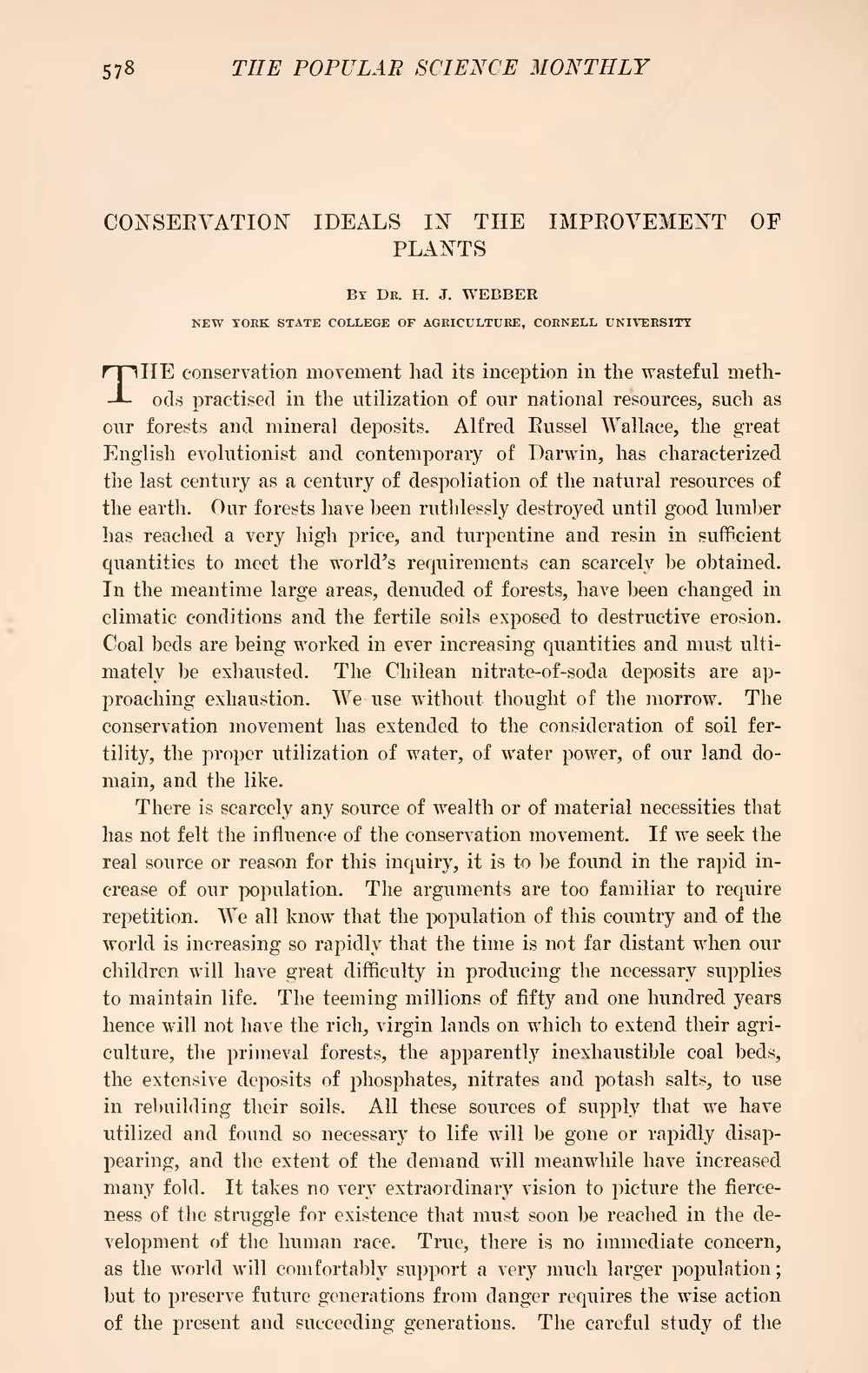| CONSERVATION IDEALS IN THE IMPROVEMENT OF PLANTS |
By Dr. H. J. WEBBER
NEW YORK STATE COLLEGE OF AGRICULTURE, CORNELL UNIVERSITY
THE conservation movement had its inception in the wasteful methods practised in the utilization of our national resources, such as our forests and mineral deposits. Alfred Russel Wallace, the great English evolutionist and contemporary of Darwin, has characterized the last century as a century of despoliation of the natural resources of the earth. Our forests have been ruthlessly destroyed until good lumber has reached a very high price, and turpentine and resin in sufficient quantities to meet the world's requirements can scarcely be obtained. In the meantime large areas, denuded of forests, have been changed in climatic conditions and the fertile soils exposed to destructive erosion. Coal beds are being worked in ever increasing quantities and must ultimately be exhausted. The Chilean nitrate-of-soda deposits are approaching exhaustion. We-use without thought of the morrow. The conservation movement has extended to the consideration of soil fertility, the proper utilization of water, of water power, of our land domain, and the like.
There is scarcely any source of wealth or of material necessities that has not felt the influence of the conservation movement. If we seek the real source or reason for this inquiry, it is to be found in the rapid increase of our population. The arguments are too familiar to require repetition. We all know that the population of this country and of the world is increasing so rapidly that the time is not far distant when our children will have great difficulty in producing the necessary supplies to maintain life. The teeming millions of fifty and one hundred years hence will not have the rich, virgin lands on which to extend their agriculture, the primeval forests, the apparently inexhaustible coal beds, the extensive deposits of phosphates, nitrates and potash salts, to use in rebuilding their soils. All these sources of supply that we have utilized and found so necessary to life will be gone or rapidly disappearing, and the extent of the demand will meanwhile have increased many fold. It takes no very extraordinary vision to picture the fierceness of the struggle for existence that must soon be reached in the development of the human race. True, there is no immediate concern, as the world will comfortably support a very much larger population; but to preserve future generations from danger requires the wise action of the present and succeeding generations. The careful study of the

